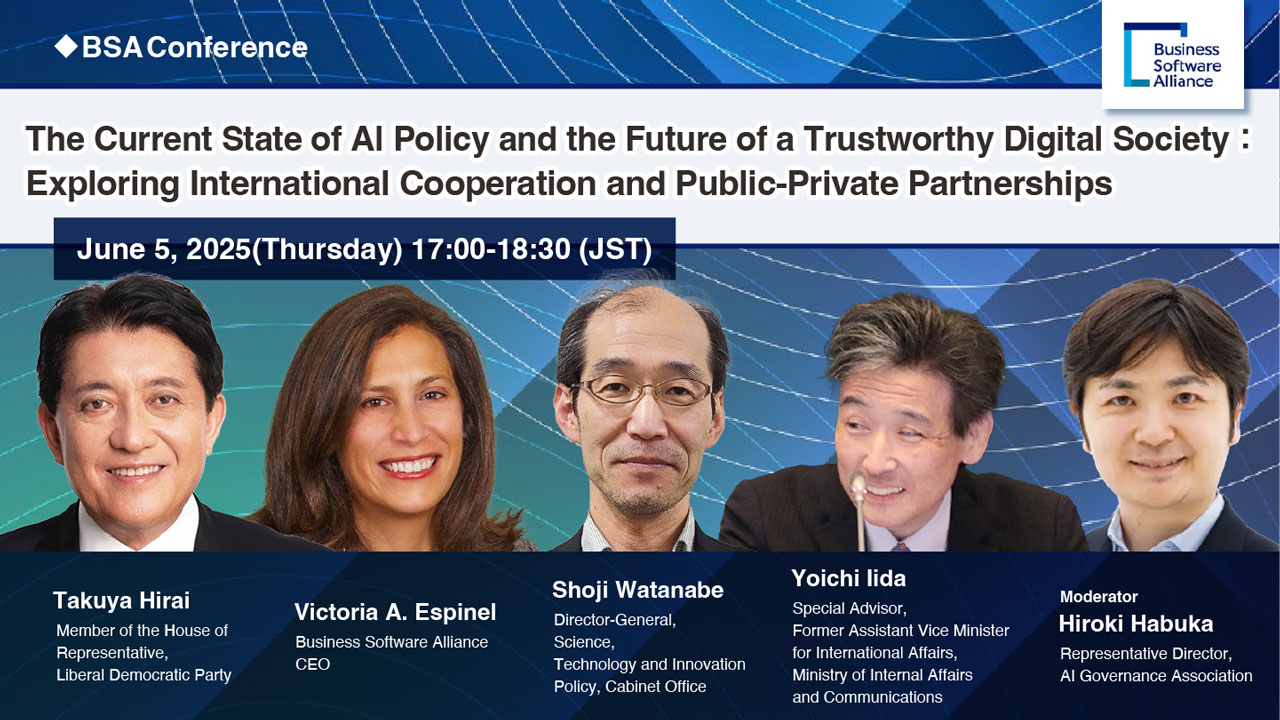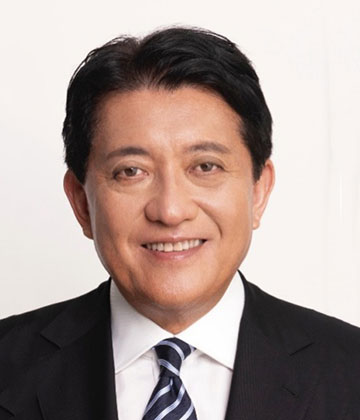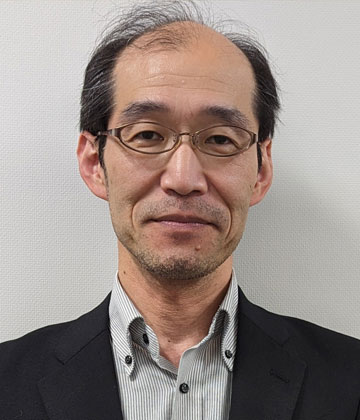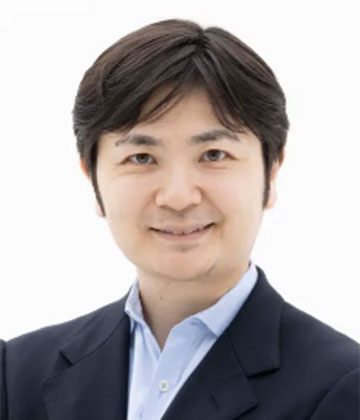
Event Overview
Discussions on AI policy are accelerating around the world as AI is increasingly adopted in society. In the EU, the “Code of Practice” is under review for the implementation of the EU AI Act which came into force last year, and in the US, the “AI Action Plan” is being developed under an Executive Order which called for relaxing regulation on AI. In South Korea, the first comprehensive legislation on AI in the Asia-Pacific region was enacted in January of this year.
Amid these developments, Japan aims to become the “world’s most AI-friendly country” by promoting both rule making and innovation through its new AI act (“Act on the Promotion of Research and Development and Utilization of Artificial Intelligence-related Technology”). The act also emphasizes the importance of promoting international cooperation through a system that could serve as a model for the world, in line with the Hiroshima AI Process, which Japan led internationally as the Chair of the G7. Discussions are also progressing on digital policies, including data utilization, to support these AI policies.
This event will examine the current state of AI and digital policies, and through dialogue with key stakeholders from Japan and abroad, explore Japan’s AI governance model and its international significance, as well as the future of digital policies and public-private collaboration.
Date/Time
June 5, 2025 (Thursday) 5:00 p.m. to 6:30 p.m. (door open: 4:30pm)
Venue
The Capitol Hotel Tokyu 1F “”Ho’oh”
Address
2-10-3 Nagatacho, Chiyoda-ku, Tokyo
Access
https://www.tokyuhotels.co.jp/en/capitol-h/access/index.html
NOTE: This is an in-person only event (no online participation nor archive video will be made available.)
Language
Japanese / English (simultaneous interpretation to be provided)
Fee
free of charge
Capacity
100 people (preregistration required)
Registration
Please register from the below page (Peatix):
bsaconference.peatix.com
NOTE: Registrants will receive an email with details about the event by the day before the event.
NOTE: The information you provide upon registering will be shared with speakers and other event staff to ensure the event runs smoothly. Please register only if you agree to this.
Organizer
Supporting Organization

AI Governance Association
Program
NOTE: Speakers may partially change due to unexpected circumstances.
| 17:00 | Opening Remarks |
| [Part 1] Outlook of Digital Policy for the Social Implementation of AI (30 min) | |
| Keynote Speech 1: Takuya Hirai (Member of the House of Representatives, Liberal Democratic Party, Head of the Digital Society Promotion Headquarters) |
|
| Keynote Speech 2: Victoria Espinel (BSA CEO) |
|
| 17:30 | [Part 2: Roundtable Discussion] (45 min) |
| Public-Private Partnerships and International Cooperation for a Trustworthy Digital Society featuring: •Shoji Watanabe (Director General of Science, Technology and Innovation Policy, Cabinet Office) •Yoichi Iida (Special Advisor to Ministry of Internal Affairs and Communications) •Victoria Espinel (CEO, Business Software Alliance) •Yoko Oshima (Assistant General Counsel, Corporate, External and Legal Affairs, Microsoft Japan) •Anthony Luna (General Counsel, IBM Japan) •Yasuyuki Nishihara (Managing Director, MUFG Digital Strategy Division) •Muneki Nemoto (Vice President of AI Governance Office,AI Governance Office,Technology Planning,NIPPON TELEGRAPH AND TELEPHONE CORPORATION) •Hidemi Harada (Associate Director, Head of Business Design Dept., Tokio Marine Holdings, Inc.) guests: •Peter Fatelnig (Minister Counsellor, Digital Economy Policy, Delegation of the European Union for Japan) •Christopher Priddy (Commercial Attaché, Embassy of the United States of America, Tokyo Japan) |
|
| 18:15 | [Q&A Session] (10 min) |
| 18:25 | [Closing Remarks] |
Speakers Part 1

Takuya Hirai
-Member of the House of Representatives – Liberal Democratic Party (LDP)
-Chairperson, Public Relations Headquarters (LDP)
-Chairperson, Headquarters for the Promotion of a Digital Society, Policy Research
Council (LDP)
-Former Minister for Digital
- Takuya Hirai has a long political career with Japan’s LDP and currently serves as a member of the House of Representatives. He is a native of Takamatsu City in Kagawa Prefecture, and graduated from Sophia University in 1980. He was elected to the House for the first time in 2000, and since then, has served nine consecutive terms. He was appointed Japan’s first Minister for Digital by Prime Minister Suga in 2021. Among his many titles, he has served as Minister for Digital, Minister for Digital Transformation, Minister in charge of Information Technology Policy, Minister of State for the Social Security and Tax Number System, Chairperson at the Digital Nation LDP Special Committee, Minister in charge of Information Technology Policy, Minister of State for “Cool Japan” Strategy, Minister of State for the Intellectual Property Strategy, Minister of State for Science and Technology Policy, Minister of State for Space Policy and others. He was among the nine policymakers from around the world honored by BSA with its inaugural “Digital Diplomacy Champions” award.

Victoria A. Espinel
CEO
Business Software Alliance (BSA)
- Victoria Espinel is a global leader advancing the future of technology innovation. After a decade of White House service in both Republican and Democratic Administrations, as a CEO of BSA, representing enterprise software companies, she currently oversees programs and initiatives in 30 countries around the world, speaking frequently on AI, privacy, cybersecurity and digital trade. She launched the Global Data Alliance, and the Digital Transformation Network, flagship BSA initiative s to further BSA’s collaboration with 15+ industry sectors globally. She also founded Software.org, the enterprise software industry’s non-profit partner. Victoria served on the National Artificial Intelligence Advisory Committee (Chair of the International Working Group), served as a member of the President’s USTR Advisory Committee for Trade Policy and Negotiations (ACTPN), and chaired the Future of Software and Society Group at the World Economic Forum. She is a lifetime member of the Council on Foreign Relations. Prior to heading BSA, she was confirmed by the US Senate to serve as the first US Intellectual Property Enforcement Coordinator advising President Obama on intellectual property. She also served in the Bush Administration as the first chief US trade negotiation for intellectual property and innovation. She holds an LLM from the London School of Economics, a JD from Georgetown University Law School, and a BS in Foreign Service from Georgetown University’s School of Foreign Service.
Part 2: Roundtable Discussion

Shoji Watanabe
Director General of Science, Technology and Innovation Policy, Cabinet Office
Director General, Cabinet Secretariat
- Shoji Watanabe serves as the Director General of Science, Technology and Innovation Policy at the Cabinet Office. He served as the secretariat of the AI Strategic Council and AI Institutional Study Group launched within the government and was involved in the drafting of the new AI Act (“Act on the Promotion of Research and Development and Utilization of Artificial Intelligence-Related Technologies”). He joined the Ministry of Economy, Trade, and Industry (METI) in 1990 after completing Master’s program at the University of Tokyo Graduate School (Master of Engineering). Among his many titles, he served as the Director of the New & Renewable Energy Division, Director of Manufacturing Bureau, Director of Industrial Technology and Environment Bureau, and Director of Commerce and Information Policy Bureau. He also served as the Deputy Director-General (in charge of Industrial Technology and Environment), Councilor of the COVID-19 Response Office at Cabinet Secretariat, also joined the Global Start-up Campus Initiative Promotion Office and the AI Strategy Team at Cabinet Office.
-

Yoichi Iida
Special Advisor, Ministry of Internal Affairs and Communications
(Former Assistant Vice Minister for International Affairs, Ministry of Internal Affairs and Communications)
- Yoichi Iida has been long engaged in international policy coordination and discussions on AI and digital policies. He joined the former Ministry of Posts and Telecommunications in 1988 after graduating from the Faculty of Economics, University of Tokyo, and from 1991 to 1993, he worked at the Information, Computer, and Communications Policy (ICCP) Division of the OECD Secretariat. From 1998 to 2001, he served as First Secretary at the Japanese Embassy in Germany. From 2023 to 2025, he served as the Assistant Vice Minister for International Affairs, and from April 2025, is serving as the Special Advisor to the Ministry of Internal Affairs and Communications. He chaired the G7 working group meeting on ICT policy in 2016 and served as the Co-Chair of the G20 Digital Economy Task Force in 2019, promoting international discussions on AI principles. He was appointed as the Chair of the OECD Digital Economy Policy Committee from 2020 and currently serves as Chair of the Digital Policy Committee. In 2023, he served as Co-Chair of the G7 Digital and Technology Working Group and contributed to the establishment of the “Hiroshima AI Process.” As the Chair of the Hiroshima AI Process Working Group, he led the agreement on the Hiroshima Process International Guiding Principles and Code of Conduct. Subsequently, in 2024, he contributed to the establishment of the “Hiroshima AI Process Friends Group,” a voluntary framework of countries supporting the spirit of the Hiroshima AI Process, achieving the participation of approximately 50 countries, and serves as the Chair of the Friends Group. At the first in-person meeting of the Friends Group held in Tokyo in February 2025, he led the establishment of the “Hiroshima AI Process Friends Group Partners Community,” which includes private-sector companies and international organizations. Additionally, from 2022 to 2023, he served as the Chair of the GPAI Executive Committee and led the GPAI Tokyo Summit. In 2023, he also served as the Co-Chair of the Multi-Stakeholder Group (MAG) of the United Nations Internet Governance Forum (IGF) and contributed to the preparation of the IGF Kyoto Meeting.
-

Yoko Oshima
Assistant General Counsel, Corporate, External and Legal Affairs
Microsoft Japan
- Yoko Oshima leads the Corporate, External and Legal Affairs division at Microsoft in Japan. Before joining Microsoft in May 2021, she was with General Electric and her last role before the departure was the general counsel of GE Japan and GE Digital Asia. Before going inhouse, she was in private practice in Tokyo (first half) and New York (second half). She is qualified in the State of New York, USA and Japan. Committed to the diversity and inclusion and the social good impact, she is a board member of Lawyers for LGBT and Allies Network in Japan and a statutory auditor of Earth Company. She recharges by art, music, nature and family and friends.
-

Anthony Luna
General Counsel
IBM Japan, Ltd.
- Anthony joined IBM Japan in July 2013, overseeing various legal matters, including M&A and litigation. He also managed the legal team responsible for long term signings such as strategic outsourcing. He became the General Counsel and a member of IBM Japan Board of Directors in July 2017. He is qualified in the State of California. Outside of IBM, he is an Adjunct Professor at the Keio University Law School specializing in “AI and Legal Trends,” and “Startup Company and Venture Law.” He is also the Co-chair of the Japan Associations of Chief Legal Officer and the Executive Board Member at the Japan In-house Counsel Network. Prior to joining IBM, he started working at Squire, Sanders & Dempsey from July 1999 and in August 2008, moved to Jones Day Tokyo Office as a Partner.
-

Yasuyuki Nishihara
Managing Director,
MUFG Digital Strategy Division - Yasuyuki Nishihara joined MUFG Bank, Ltd. in 2002 and has been engaged in strategic planning, development, and operation of banking systems, as well as cybersecurity operations, both domestically and internationally for over 20 years. He assumed current position in 2024. He specializes in global IT governance and cybersecurity. In his current role, he is responsible for driving the company’s digital strategy, as well as AI governance and risk management. He holds a Master’s degree in Information Systems Management from Carnegie Mellon University. Certified as a Certified Information Systems Security Professional (CISSP), Certified Information Systems Auditor (CISA), and Certified in the Governance of Enterprise IT (CGEIT).
-

Muneki Nemoto
Vice President of AI Governance Office,
AI Governance Office,
Technology Planning,
NIPPON TELEGRAPH AND TELEPHONE CORPORATION
- Muneki Nemoto joined NTT Data in 1999. He worked on more than 20 projects as an IT architect and IT consultant. He served as the leader of the emergency troubleshooting team and project manager for a system development project exceeding 10 billion yen. He also served as the Head of Data & Intelligence Technology Department, establishing and overseeing the AI Governance Office. He joined NTT in 2023 and established the AI Governance Office and led the development and implementation of AI governance Regulations and AI risk management systems for the NTT Group’s 340,000 employees (including 150,000 overseas). As an individual, he participated in the EU AI Act General-Purpose AI Model Code of Practice Plenary and proposed improvement suggestions. He also contributed to the development of the Hiroshima AI Process Reporting Framework (HAIP RF) and implemented reporting for the NTT Group based on the framework.
-

Hidemi Harada
Associate Director
Head of Business Design Dept.
Tokio Marine Holdings, Inc.
- After graduating from the Faculty of Engineering at the University of Tokyo, he joined Tokyo Marine and Fire Insurance Co., Ltd. (now Tokyo Marine & Nichido Fire Insurance Co., Ltd.) in 1998. From 2002 to 2010, he was part of the Personal Products Division, Automobile Group. Carrying on the pioneering spirit of developing Japan’s first automobile insurance, he developed the industry’s first one-day automobile insurance, “Choi-no-ri Insurance.” From 2011, he worked in the Marketing Group of the Sales Planning Department, developing the “Drive Agent,” an insurance product integrated with a dashcam. After serving in the Global Leadership Pathway and as a representative in TM Asia (Singapore), he joined the Business Strategy Department of Tokyo Marine Holdings, Inc. in 2019, where he was responsible for planning and advancing the group’s digital strategy. In 2023, he served as the Digital Innovation Division Manager at Tokyo Marine Nichido Fire Insurance Co., Ltd., and assumed his current position in April 2024. He was appointed as a Board Member in April 2025. In November 2021, he established the Disaster Prevention Consortium (CORE), and in November 2024, the Logistics Consortium baton, focusing on cross-industry collaboration to address the company’s challenges. He is responsible for creating new solution businesses beyond traditional insurance products, planning and promoting AI/data utilization across the entire group. He currently serves as the President and CEO of Tokyo Marine Smart Mobility Co., Ltd., Executive Vice President of Tokyo Marine Resilience Co., Ltd., Director of Tokyo Marine Well Design Co., Ltd., Director of ID&E Holdings Co., Ltd. and Board Member of the Financial Data Promotion Association.
Part 2: Moderator

Hiroki Habuka
-Representative Director, AI Governance Association
-CEO of Smart Governance
-Research Professor at the Graduate School of Law, Kyoto University
-Attorney-At-Law (Japan and New York State)
- Hiroki Habuka specializes in law, corporate governance, and social governance in the area of AI and data society. He graduated from the Faculty of Law and the Graduate School of Law at the University of Tokyo, and Stanford Law School (Fulbright Scholar). He previously worked at Mori Hamada & Matsumoto Law Offices, the Financial Services Agency, and the Ministry of Economy, Trade and Industry (METI), among others, before assuming his current position. At METI, he was the lead author of a report on agile governance published by the ministry. In 2020, the World Economic Forum’s Global Future Councils on Agile Governance and Apolitical named him one of the World’s 50 Most Influential People Revolutionizing Government (Agile 50). He authored “Introduction to AI Governance: From Risk Management to Social Design” (Hayakawa Shinsho). He is also a Research Professor at the Graduate School of Law, Kyoto University, a Non-Resident Fellow at the Center for Strategic and International Studies (CSIS), a member of the World Economic Forum’s Global Future Council on GovTech and Digital Public Infrastructure, a member of the AI Governance Committee at the RIKEN Research Institute, a member of the AI Standardization Committee at the National Institute of Advanced Industrial Science and Technology, and the Chair of the Expert Advisory Committee on the Use of Generative AI in the Children and Parenting Sector at the Children and Families Agency.



